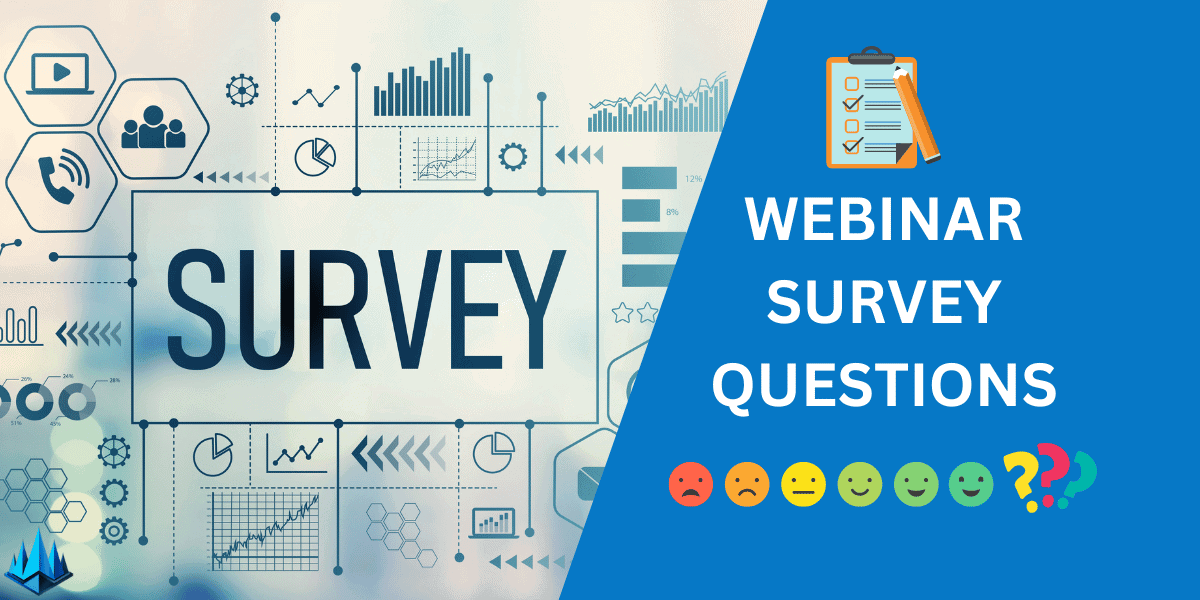When it comes to running a successful ecommerce business, having the right tools at your disposal is essential. One of the most important tools for any online retailer is a reliable ecommerce app. These apps can help streamline your operations, improve customer experience, and boost your bottom line. But with so many options available, it can be difficult to know where to start.
In this article, we’ll take a closer look at some of the top ecommerce apps on the market today. We’ll explore key features, pricing considerations, customer support options, and the benefits of using an ecommerce app for your small business. Whether you’re just starting or looking to switch to a new platform, we’ll help you understand what to look for and how to choose the right app for your needs.
Key Takeaways
- Ecommerce apps are essential for any online retailer to streamline operations and improve customer experience.
- When choosing an ecommerce app, it’s important to consider key features, pricing, and customer support options.
- By understanding the benefits of ecommerce apps and choosing the right platform for your business, you can take your ecommerce operations to the next level.
Trying The Best Ecommerce Apps
When running an ecommerce business, having the right tools and software is essential. Ecommerce apps can help streamline operations, improve customer experience, and increase sales. This section will provide an overview of ecommerce apps and their benefits.
Ecommerce apps are software applications designed to help businesses manage their online stores. These apps can help with various tasks, such as inventory management, order processing, marketing, and customer service. Many ecommerce apps are cloud-based, which means they can be accessed from anywhere with an internet connection.
One of the primary benefits of ecommerce apps is that they can help automate many tasks in running an online store. For example, apps like SkuVault can help with inventory management, while apps like Yotpo can help with product reviews and referrals. This can save businesses time and money, allowing them to focus on other essential aspects of their business, such as product development and marketing.
Another benefit of ecommerce apps is that they can help improve customer experience. Apps like Constant Contact can help with email marketing, while apps like Doofinder can help with storefront search functionality. This can help businesses reach more customers and provide a better shopping experience, increasing sales and customer loyalty.
Overall, ecommerce apps can be a valuable tool for businesses looking to improve their online operations. With so many options available, it’s essential to research and find the apps that best fit your needs.
What are The Best Ecommerce Apps
When it comes to ecommerce apps, there are a lot of options available in the market. However, some of the most popular and reliable ones are Shopify, BigCommerce, WooCommerce, Wix, Ecwid, Square Online, Shift4Shop, Weebly, Squarespace, Ecwid by Lightspeed, Big Cartel, CoreCommerce, and Volusion.
Shopify
Shopify is one of the most well-known ecommerce platforms, and for a good reason. It offers many features, including customizable templates, a mobile app, and a point-of-sale system. Additionally, Shopify has a large community of developers who create plugins and extensions to enhance the platform’s functionality.
BigCommerce
Bigcommerce is another popular ecommerce platform that offers a wide range of features, including customizable templates, a mobile app, and a point-of-sale system. Additionally, BigCommerce offers a range of marketing and SEO tools to help businesses grow their online presence.
WooCommerce
WooCommerce is a popular ecommerce plugin for WordPress that offers a range of features, including customizable templates, a mobile app, and a point-of-sale system. Additionally, WooCommerce offers a range of marketing and SEO tools to help businesses grow their online presence.
Wix
Wix is a website builder that also offers ecommerce functionality. It provides a range of customizable templates, a mobile app, and a point-of-sale system. Additionally, Wix provides a range of marketing and SEO tools to help businesses grow their online presence.
Ecwid
Ecwid is a popular ecommerce platform offering various features, including customizable templates, a mobile app, and a point-of-sale system. Additionally, Ecwid provides a range of marketing and SEO tools to help businesses grow their online presence.
Square Online
Square Online is a popular ecommerce platform offering various features, including customizable templates, a mobile app, and a point-of-sale system. Additionally, Square Online provides various marketing and SEO tools to help businesses grow their online presence.
Shift4Shop
Shift4Shop is an ecommerce platform offering various features, including customizable templates, a mobile app, and a point-of-sale system. Additionally, Shift4Shop provides multiple marketing and SEO tools to help businesses grow their online presence.
Weebly
Weebly is a website builder that also offers ecommerce functionality. It provides a range of customizable templates, a mobile app, and a point-of-sale system. Additionally, Weebly offers a range of marketing and SEO tools to help businesses grow their online presence.
Squarespace
Squarespace is a website builder that also offers ecommerce functionality. It provides a range of customizable templates, a mobile app, and a point-of-sale system. Additionally, Squarespace provides various marketing and SEO tools to help businesses grow their online presence.
Big Cartel
Big Cartel is an ecommerce platform specifically designed for artists and makers. It offers a range of features, including customizable templates, a mobile app, and a point-of-sale system. Additionally, Big Cartel offers a range of marketing and SEO tools to help businesses grow their online presence.
CoreCommerce
CoreCommerce is an ecommerce platform offering various features, including customizable templates, a mobile app, and a point-of-sale system. Additionally, CoreCommerce provides various marketing and SEO tools to help businesses grow their online presence.
Volusion
Volusion is an ecommerce platform offering various features, including customizable templates, a mobile app, and a point-of-sale system. Additionally, Volusion provides multiple marketing and SEO tools to help businesses grow their online presence.
When choosing an ecommerce app, it’s essential to consider your business’s specific needs and goals. Each platform has its strengths and weaknesses, so it’s necessary to research and choose the one that’s right for you.
Key Features of Ecommerce Apps
When choosing an ecommerce app, there are several key features to consider. In this section, we will discuss the most critical features that ecommerce apps should have to help you run your online store efficiently.
Inventory Management
One of the most essential features of an ecommerce app is inventory management. This feature lets you track your stock levels, set alerts for low stock, and manage your inventory across multiple channels. Look for an app that offers real-time inventory management to avoid overselling and stockouts. Some popular inventory management apps include SkuVault and TradeGecko.
Payment Gateways
Payment gateways are essential for any ecommerce store. They allow you to process customer payments securely using various payment methods. Look for an app that supports multiple payment gateways, such as PayPal, Stripe, and Square. This will give your customers more options and increase the likelihood of completing a sale.
SEO and Marketing Tools
SEO and marketing tools are crucial for driving traffic to your ecommerce store. Look for an app with built-in SEO tools, such as meta tags and sitemaps, to help your store rank higher in search engine results. Additionally, look for an app that offers email marketing and social media integration to help you reach your target audience and increase sales.
Integration Capabilities
Integration capabilities are essential for ecommerce apps because they allow you to connect your store with other software tools and services. Look for an app that offers a wide range of integrations, including third-party apps for shipping, accounting, and customer service. This will help you streamline your operations and save time.
Customization and Themes
Customization and themes are essential for creating a unique and professional-looking ecommerce store. Look for an app that offers a variety of free and paid themes and customization options for colors, fonts, and layouts. This will allow you to create a store that reflects your brand and appeals to your target audience.
In summary, when choosing an ecommerce app, it’s important to consider features such as inventory management, payment gateways, SEO and marketing tools, integration capabilities, and customization and themes. You can run your online store efficiently and effectively by selecting an app that offers these features.
Benefits of Ecommerce Apps for Small Businesses
As a small business owner, we understand the importance of increasing value and promoting growth. One of the most effective ways to achieve this is by utilizing ecommerce apps. Here are some of the key benefits of ecommerce apps for small businesses:
Increased Reach and Visibility
Ecommerce apps allow small businesses to reach a wider audience and increase their visibility. With the rise of mobile devices, more and more people are using their smartphones and tablets to shop online. By having an ecommerce app, we can tap into this growing market and attract new customers.
Improved Customer Experience
Ecommerce apps provide a seamless and convenient shopping experience for customers. With features such as product search, easy checkout, and personalized recommendations, we can improve the overall customer experience and increase customer satisfaction. This can lead to repeat business and positive word-of-mouth recommendations.
Enhanced Marketing Opportunities
Ecommerce apps provide a variety of marketing opportunities for small businesses. We can use push notifications to promote sales and new products, offer loyalty programs to reward repeat customers, and use social media integration to expand our reach. These marketing tools can help us increase sales and promote customer engagement.
Streamlined Operations
Ecommerce apps can also help streamline our business operations. Automating processes such as inventory management and order fulfillment can save time and reduce costs. This can free up our resources to focus on other business areas, such as product development and customer service.
Overall, ecommerce apps can provide a range of benefits for small businesses. By increasing our reach and visibility, improving the customer experience, enhancing marketing opportunities, and streamlining operations, we can create value and promote growth for our business.
Ecommerce Platforms Vs Ecommerce Apps

When setting up an online store, there are two primary options to choose from: ecommerce platforms and ecommerce apps. Both options offer unique advantages and disadvantages, and choosing the right one for your business depends on your specific needs and goals.
Ecommerce Platforms
Ecommerce platforms are comprehensive software solutions that provide everything you need to set up and manage an online store. They typically offer many features, including website design templates, product management tools, payment processing, and marketing and analytics tools. Some popular ecommerce platforms include Shopify, WooCommerce, and BigCommerce.
One of the main advantages of using an ecommerce platform is that they are designed to be all-in-one solutions. You don’t need to integrate different tools and services to create a functional online store. Ecommerce platforms also tend to be more customizable than ecommerce apps, allowing you to tailor your store to your needs.
However, ecommerce platforms can be more expensive than ecommerce apps, often requiring more technical knowledge to set up and manage. Additionally, because ecommerce platforms are more comprehensive, they can be more resource-intensive, slowing down your website’s loading speed.
Ecommerce Apps
Ecommerce apps, on the other hand, are more focused solutions that provide specific features and tools for online stores. They are typically designed to integrate with existing websites and content management systems, making them a good option for businesses with an online presence. Some popular ecommerce apps include Yotpo, Doofinder, and Constant Contact.
One of the main advantages of using an ecommerce app is that it tends to be more affordable than ecommerce platforms. They are also easier to set up and manage, as they are designed to work with existing websites and content management systems. Additionally, because ecommerce apps are more focused, they can be more lightweight and faster than ecommerce platforms.
However, ecommerce apps can be less customizable than ecommerce platforms, and they may not offer as many features. Additionally, because ecommerce apps are more focused, you may need to use multiple apps to create a complete online store, which can be more complex to manage.
Ultimately, choosing between an ecommerce platform and an ecommerce app depends on your specific needs and goals. If you’re looking for a comprehensive solution that provides everything you need to set up and manage an online store, an ecommerce platform may be the best choice. However, if you already have an online presence and are looking for specific tools and features to enhance your online store, an ecommerce app may be a better fit.
Pricing Considerations
When choosing an ecommerce app, pricing is one of the most important considerations. It is essential to find a plan that fits your budget and offers the features you need to run your online store.
Most ecommerce apps offer multiple pricing plans with different features and pricing tiers. It is essential to carefully evaluate each project and its associated costs to determine which plan is right for your business.
In addition to monthly fees, transaction fees, and payment gateway fees are also essential to consider. Transaction fees are a percentage of each sale the ecommerce app takes as a commission. Payment gateway fees are the fees the payment processor charges for processing credit card transactions.
Some ecommerce apps offer their payment gateway, while others integrate with third-party payment processors. It is essential to consider the fees associated with each payment gateway option and choose the one that offers the best value for your business.
When considering pricing, it is also essential to consider the ecommerce app’s scalability. As your business grows, you may need to upgrade to a higher pricing plan to accommodate increased traffic and sales.
When evaluating pricing for ecommerce apps, it is essential to consider all associated costs, including monthly fees, transaction fees, and payment gateway fees. Doing so lets you choose the plan that offers the best value for your business.
Customer Support and Service
As an ecommerce business, we understand the importance of providing excellent customer support and service to our customers. Customers expect quick and efficient responses to their queries and concerns in today’s competitive market. Therefore, it is essential to invest in the right customer support and service tools to ensure customer satisfaction.
Several customer support and service tools are available in the market to help us provide the best possible service to our customers. Some of the most popular tools include:
- Helpwise: Helpwise is a user-friendly customer service platform that can help us manage our customer service efficiently. It provides modern and streamlined customer support, essential for any growing ecommerce business.
- Sprout Social: Sprout Social is a social media management and optimization platform that can help us provide social media support to our customers. It allows us to publish and monitor content across multiple social networks, making engaging with our customers easier.
- LiveAgent: LiveAgent is an all-in-one customer support software that can help us manage all our customer support channels in one place. It provides a unified inbox, which makes it easier for us to manage our customer support emails, chats, and calls.
- Tidio: Tidio is a live chat software that can help us provide real-time customer support. It allows us to chat with our customers directly from our website, making addressing their concerns and queries easier.
Investing in the proper customer support and service tools can help us provide excellent customer service, increasing customer loyalty and retention. Therefore, we must choose the right tools that suit our business needs and budget.
In conclusion, providing excellent customer support and service is crucial for any ecommerce business. By investing in the right tools, we can ensure that we give the best possible service to our customers, which can help us stand out in the market.
Security in Ecommerce Apps
As an ecommerce business, security is one of the most critical aspects of our operations. We understand that our customers trust us with their personal and financial information, and our responsibility is to ensure that their data is safe and secure. This section will discuss some of the best practices for ecommerce app security.
One of the first things we do to ensure security in our ecommerce apps is to use SSL certificates. SSL certificates provide a secure connection between the user’s browser and our server, ensuring that any information transmitted between the two is encrypted and protected from hackers and malicious actors. We make sure that all of our ecommerce apps use SSL certificates to ensure the security of our customer’s data.
Another important aspect of ecommerce app security is keeping our software current. We regularly update our ecommerce apps to ensure they run the latest, most secure software. This includes updating our content management systems, plugins, and other software components that our ecommerce apps rely on.
We also use strong passwords and two-factor authentication to protect our ecommerce apps from unauthorized access. We make sure that all of our employees use strong passwords and change them regularly, and we require two-factor authentication for all logins to our ecommerce apps.
In addition to these measures, we regularly monitor our ecommerce apps for security vulnerabilities and take immediate action to address any issues we find. We also conduct regular security audits to ensure our ecommerce apps are as secure as possible.
Overall, security is a top priority for us in our ecommerce apps. We take a proactive approach to security, using SSL certificates, keeping our software up to date, using strong passwords and two-factor authentication, and regularly monitoring our apps for security vulnerabilities. By following these best practices, we can ensure the security of our customer’s data and maintain their trust in our business.
Choosing the Right Ecommerce App for Your Business
When choosing an ecommerce app for your business, several factors must be considered. We understand that finding the right app can be daunting, but we’re here to help you make an informed decision.
Firstly, consider the type of online store you want to create. Do you want to sell physical products or digital goods? Do you need a point of sale (POS) system for in-person sales? Understanding the type of store you want to create will help narrow your options.
Next, consider your budget. Some ecommerce apps are free, while others charge a monthly fee. Remember that certain features, such as advanced analytics or unlimited bandwidth, may cost additional.
Bandwidth is another important factor to consider. If you anticipate high traffic to your online store, you’ll need an ecommerce app that can handle the volume without slowing down your site.
Enterprise-level businesses may require more advanced features like multi-store management or customizable checkout pages. Be sure to choose an ecommerce app that can accommodate your specific needs.
When it comes to selling online, security is of utmost importance. Ensure the ecommerce app offers secure payment processing and SSL encryption to protect your customers’ sensitive information.
In summary, choosing the right ecommerce app for your business requires careful consideration of your budget, type of store, bandwidth needs, and desired features. We recommend researching and comparing multiple options before making a final decision.
Frequently Asked Questions
What are the top e-commerce companies?
Several top e-commerce companies, including Amazon, Walmart, and eBay. These companies have a solid online presence and are known for their vast product selection, competitive pricing, and fast shipping. They also offer services like third-party seller platforms and subscription-based programs to help businesses grow and succeed in the e-commerce industry.
What is the best e-commerce platform for a small business?
When choosing the best e-commerce platform for a small business, there are several factors to consider, such as ease of use, pricing, and scalability. Some top e-commerce platforms for small businesses include Shopify, BigCommerce, and WooCommerce. These platforms offer a range of features and tools that can help companies to create and manage their online stores, from customizable templates to payment processing and shipping integrations.
Which e-commerce app builder has the best user interface?
Regarding e-commerce app builders, there are several options to choose from, including Shopify, BigCommerce, and Wix. Each platform has its strengths, but Shopify is often considered to have the best user interface. Its drag-and-drop editor makes creating and customizing your app easy, while its intuitive dashboard and analytics tools make it easy to manage and grow your business.
What are the best e-commerce apps for selling products?
Several e-commerce apps can help businesses sell their products online, including Amazon, eBay, and Etsy. These platforms offer a range of features, such as built-in payment processing, shipping integrations, and seller tools, that can help businesses reach new customers and increase sales. Other popular e-commerce apps include Shopify, BigCommerce, and WooCommerce, which offer businesses more customizable options and flexibility.
Which e-commerce platform has the most user-friendly mobile app?
Regarding e-commerce platforms with user-friendly mobile apps, Shopify and BigCommerce are often considered the best options. Both platforms offer mobile apps that allow businesses to manage their online stores, track sales, and communicate with customers on the go. These apps are easy to use and offer a range of features, such as inventory management and order tracking, that can help businesses stay organized and efficient.
What are the essential features of a good e-commerce app?
A good e-commerce app should have several essential features, such as a user-friendly interface, mobile responsiveness, and secure payment processing. Other essential features include product management tools, such as inventory tracking and order fulfillment, and marketing and analytics tools, such as SEO optimization and customer data tracking. Overall, a good e-commerce app should be easy to use, customizable, and scalable to meet the needs of businesses of all sizes.











